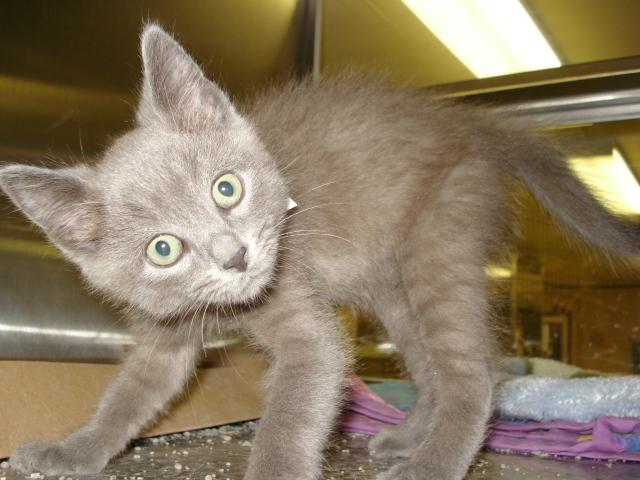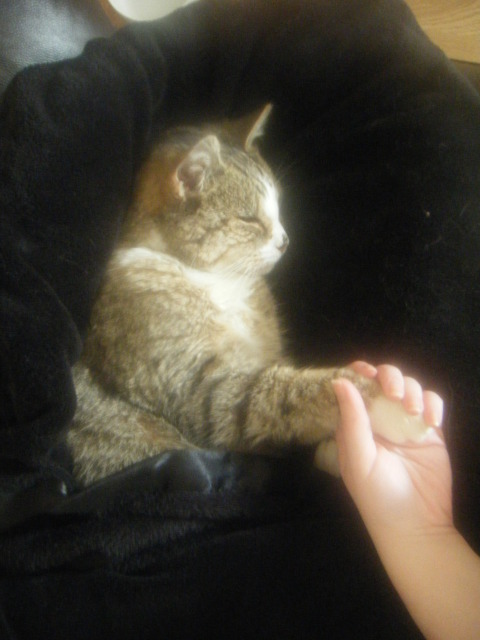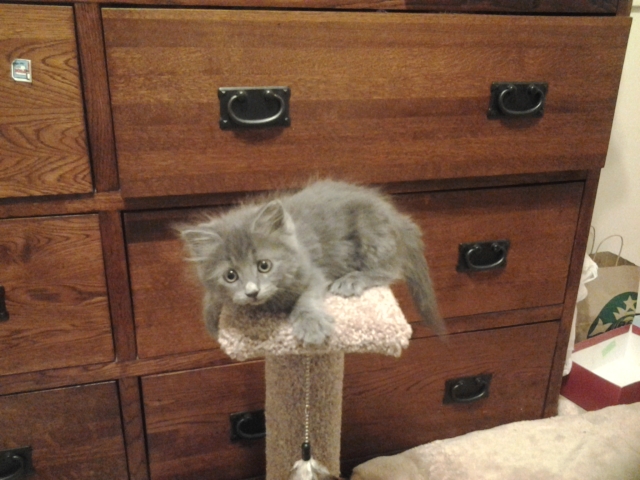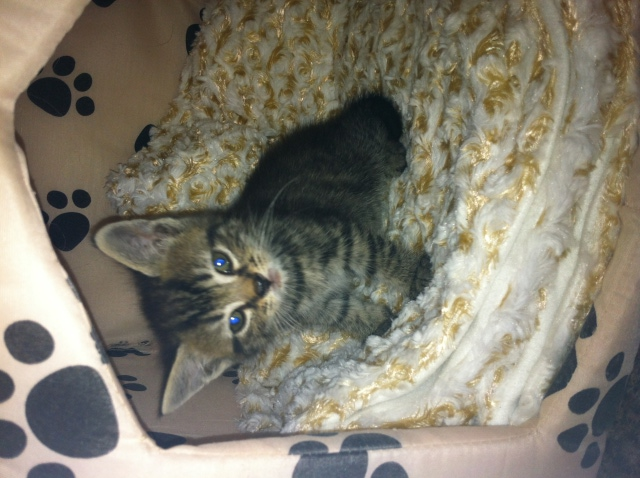QuestionHello,
My cat used to be a feral cat, but for the last 3 years he's been living with my family and now he's a indoor/outdoor cat. The vet estimated he's about 6 years old, but he couldn't say for sure because he lived outside for so long. He usually comes at our place to eat, he then sleeps for not more than 4 hours, than he eats more and than he leaves and comes back the next day. But for the last couple of weeks he has been sleeping a lot, up to 10 hours until he wakes up to eat and maybe leave for a couple of hours and than come back to sleep again. Also sometimes he coughs or tries to throw up fur balls without actually throwing up, he just does that typical motion/ movement (he has short fur and he never through up fur-balls), he does this for a couple of months now. He hasn't lost his appetite and his behavior hasn't changed, except the sleeping habits. So my question is, is it possible that something serious is wrong with him? might it be just a phase? he is a tough kitty,the alpha kitty from our neighborhood, he has been feral for at least 2 years and I understand that is a lot for cats.
Thank you and have a good day :)
AnswerIoana,
There are a number of things that could potentially be causing your kitty to sleep much more than usually and it would be wise to rule out potential medical issues. As a rule regardless of their lifestyle cats quite commonly hide illnesses or injuries until they can't do so any longer because of their innate instinct to hide weaknesses from predators as a means of preventing themselves from becoming prey to a larger, stronger animal. The fact that you've noticed such a significant change in the amount of sleeping this little cat does in a day is a concern and the sooner that he can be thoroughly assessed by your veterinarian the better, particularly since he's an outdoor, free roaming (and I'm assuming he hasn't been neutered) cat who is potentially getting into fights related to dominance, territory and/or mating rights with other cats on a fairly regular basis. There are a number of serious illnesses that can be transmitted from one cat to another during fights and many of them could cause a kitty to sleep more frequently and for longer periods of time. The stress of living life while trying to ensure that he's got ample food, shelter and warmth could also be catching up with him - he may be living much of his life on an adrenaline high and sleeping when and where he feels safest which is when he's with you.
Your vet may recommend blood and urine tests to check for any signs of deteriorating health and I'd recommend going ahead with these tests if at all possible because routine blood tests provide veterinarians with great information about how a cat's body is functioning overall. Simple blood tests also provide the veterinarian with more specific information about a cat's health status including how well his major organ systems are functioning, whether or not he's got serious acute and/or chronic medical conditions and blood counts allow a vet to quickly figure out whether a cat is fighting off a bacterial infection anywhere in his body.
Many people are unaware of the difference between a true feral cat and a stray cat, feral cats are wild animals who have not had the opportunity to socialize with people during their early development which causes them to be very afraid of people in the majority of situations once they've reached a certain point in their development. Stray cats are abandoned pets who may have become wary of people as a result of having people chase them off of their property, intentionally frighten them or even commit acts of cruelty against them, however strays are more than capable of developing trusting relationships with people who care for them.
If this kitty is a true feral you may need to speak with your veterinarian about borrowing a humane live trap to catch him and bring him to the clinic to be assessed (in this situation it's important to inform the veterinary staff that the cat is a feral kitty so that they may take appropriate safety precautions when handling him). If your regular feline visitor is a stray kitty and you have a good relationship with him then he may allow you to place him into a cat carrier or box to be transported to the vet. Whether this kitty is feral or stray will also have an impact on the course of treatment if he's sick, in general when feral cats need extensive medical care they can become highly stressed and it is sometimes more humane to treat them at a distance (an example would be putting their medicine into food). Ultimately you don't want to cause any more stress than you absolutely have to for a feral kitty and in some cases even though euthanasia wouldn't be the first option for a cat who is comfortable with people there are times when it's more humane to euthanize a sick feral than to repeatedly sedate him for treatment or stress him continually by forcing him to have contact with what he fears most - human beings.
If this kitty is a stray then you'll need to decide how far you're willing to go financially and emotionally to help him regain his health - depending on what the situation is you may also have to decide whether or not you're willing to adopt him or foster him temporarily while he's getting treatment and find him a home once he's regained his strength. There is no one right answer, but I'm more than willing to offer any help that I can based on my experience for you and your feline friend so please don't hesitate to contact me with any questions or concerns that you might have.

 Rehabilitating aggressive rescue cat!
QuestionA friend of me and my husbands was told a week
Rehabilitating aggressive rescue cat!
QuestionA friend of me and my husbands was told a week
 my old cat with no appetite
Question
Timmy since his loss o
Hi, Im really worried a
my old cat with no appetite
Question
Timmy since his loss o
Hi, Im really worried a
 why does my kitten keep peeing on the bed
Question
My kitten
my 7-8 week old kitten has b
why does my kitten keep peeing on the bed
Question
My kitten
my 7-8 week old kitten has b
 Female Cat changes behavior
Question
Patches
I have four older cats, a dog and now
Female Cat changes behavior
Question
Patches
I have four older cats, a dog and now
 Bengal kitten?
Question
Pic Picture
Hello, I was wonderi
Bengal kitten?
Question
Pic Picture
Hello, I was wonderi